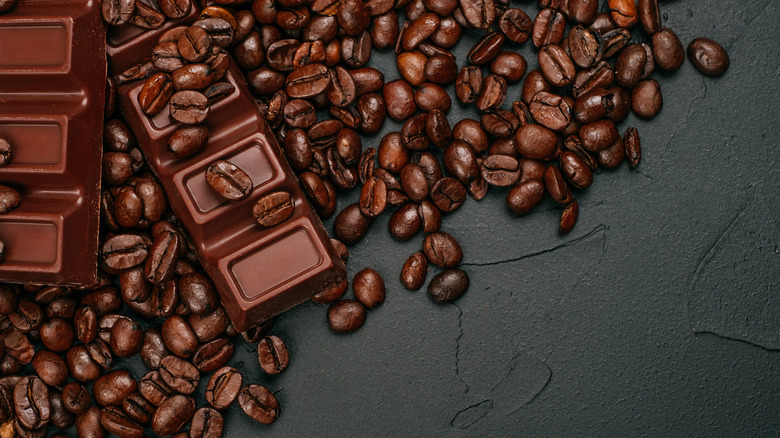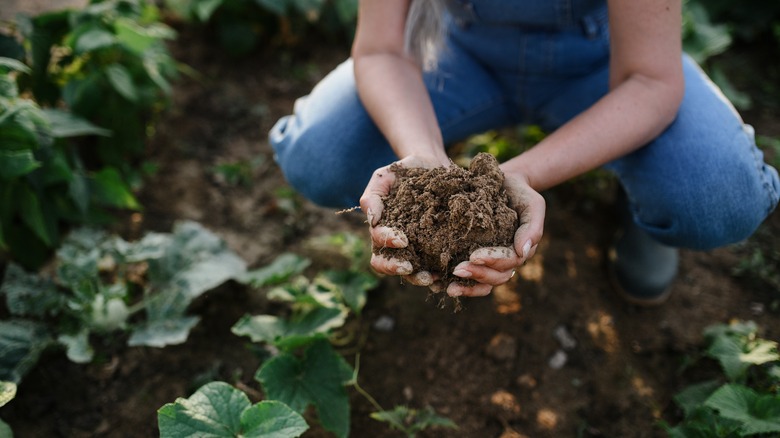Former White House Chef Warns Coffee And Chocolate Will Become Scarce
What if some of your favorite foods completely disappeared from the culinary roster? Although comforts like coffee and chocolate might be staples in our daily diets, they're also some of the ingredients most at risk of disappearing, according to former White House Chef, Sam Kass. During a meal dubbed the "$500 Dinner," People reports that the keynote speaker warned of the less-than-palatable consequences of climate change.
"A number of foods that we hold very dear to our hearts and largely take for granted are under a real threat," explains Kass. "You're seeing in the future, we're on track for a lot of those to become quite scarce and some really to be largely unavailable to most people and others just significantly increased in cost."
The threat behind all this is, of course, climate change. According to the Environmental Protection Agency, a steady increase in temperatures can affect precipitation and trigger extreme weather events, which can ultimately diminish the availability of certain foods and even reduce the quality of these goods. While coffee and chocolate are just some of the crops at risk, that's just the tip of the iceberg. Everyday basics like rice, potatoes, honey, and even things like maple syrup are in jeopardy of becoming unattainable because the environmental requirements for growing and developing these foods are at risk.
A dinner to put the future of food into perspective
Starting as an Assistant Chef for the White House in 2009, Chefs for Impact explains that Kass also served as the Executive Director of the former first lady's Let's Move! campaign and as the Senior Policy Advisor for Nutrition. With a focus on nutritional education and advocacy for better food systems, the culinary creative partnered with Knorr to speak out on how food security is being impacted by the swiftly rising temperatures.
Highlighting the inflation of food costs due to potential ingredient scarcity, People explains that while the meal served at the event cost roughly $72, Kass argued that the same dish might be valued at upwards of $500 in as little as 30 years. As availability declines outrageous inflation might be the only way to attain certain items in the future. While shocking, it's also a totally plausible reality.
Although Kass offered consumer-based solutions to reduce stress on the agricultural industry like adopting a more plant-based diet, the Chef also shared the importance of food corporations implementing regenerative agriculture as the new mode of conventional farming and production. While lower yields are often the drawback of such systems, EIT shares that regenerative practices prioritize soil health and promote biodiversity, making ecosystems more resilient. Because no one will ever be ready to say goodbye to chocolate, the future of food starts with our actions today.

